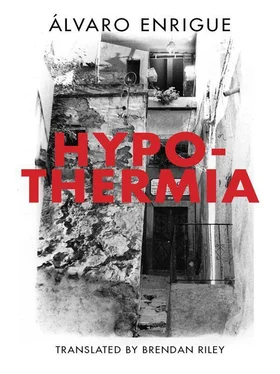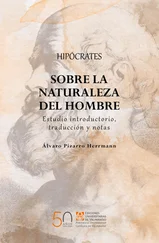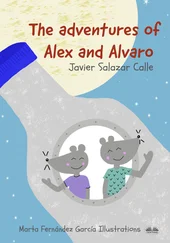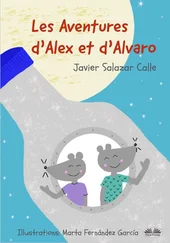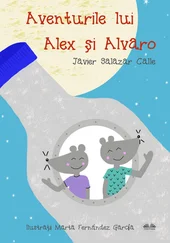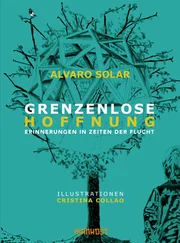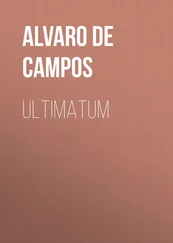I’ve lost too many contests — including one that was rigged in my favor — for the likelihood of my being judged to keep me awake at night. Even so, I was on the alert for several weeks, awaiting the arrival at my restaurant of a contingent of Swiss gentlemen — tall, balding, red-faced, and wearing thick eyeglasses. In the fantasies produced by my abominably boring and friendless life, in an apartment without a TV, that’s precisely how the Swiss appear.
Nobody who looked even remotely like that ever sat down at our tables, so I supposed that they’d forgotten about me, or that the Swiss might have snuck in in the guise of gringo students or Mexican office clerks. One of my waiters — a Colombian know-it-all — told me that the Swiss were Calvinists, and that’s how we’d be able to recognize them. I asked him what a Calvinist would look like. He told me that they’re very strict, practically vegetarians, and that they’ve got no lips. I took note.
At last a woman with a neutral French accent phoned to let me know that my masterful red snapper in fig vinaigrette had earned me the privilege of competing on Lard . She didn’t speak Spanish but she understood my English, and she was polite, friendly, and obviously very young. It had never occurred to me that there were also Swiss women, much less ones that were young. She was quite insistent that it was the fine quality of my cooking that had won me the honor of participating, that I should be proud and list it as such on my résumé, for which reason I supposed my restaurant to be lacking in hygiene and me in charisma. I asked her if she was from the Secretariat. She didn’t understand and again recommended that I include my status as a finalist on my résumé.
Once in Lima, Mr. Hinojosa was equally unable to set me straight. The moment I got in his Mercedes I asked him about the people who had hired him. He said that he had no information to give me. He worked for a security agency and all they told him was what to do — he’d spent the whole day delivering foreigners to a hotel in Miraflores. I spoke vaguely about how Mexican chauffeurs made more money from tips than from their nominal wages, then after a pause asked him if he wasn’t authorized to give me that information or if he really didn’t know. Although I’ve lived in the United States for several years, I know perfectly well how to overcome the resistance of my fellow Latin Americans. He told me that if he knew he would tell me because he liked me. Sure, I answered him. Are you attending a conference? he asked me after a while. I was riding along staring distractedly out the window — I’m from Mexico City but still managed to be astonished by the ugliness of Lima, which even surpassed its reputation. No, I told him, with my eyes fixed on the horrific casinos that lined the avenue down which we traveled, we’re here for a dinner, and then a kind of competition.
The program that they’d sent me once I became a finalist wasn’t very clear, at least not to me, and if there’s something I know nothing about, it’s how the media works: the first day was for individual preproduction filming with each chef, then we were all attending a dinner together at the house of Max Terapia — though he was not expected to be cooking. The next day, the actual competition would be filmed at a studio, they’d pay us our honoraria and a cash prize for the winner, then send us home.
It’s all a little mysterious, Mr. Hinojosa told me. Normally, people tell me why they’ve come to Lima, but you’re the fifth one that I’ve picked up today and only the first to tell me anything. Is it a conference for secret agents? he asked. I told him it wasn’t, that it was for chefs. Another one of the envelopes that I’d gotten after talking with the perky young Swiss woman contained an astonishingly long contract that forbade me from saying anything about my participating in Lard save to my most discreet, intimate associates. I supposed, however, that the clause was really there to prevent my saying anything to food critics and other chefs, so I saw no reason not to tell Mr. Hinojosa that I was going to a dinner at Max Terapia’s house. He slammed on the brakes, screeching to a halt in the middle of the street, then turned around to face me. Is he here in Lima? he asked me, as if the presence in town of a saucepan artiste was something of great import. He looked out the windows, nervously glancing left and right. I suppose so, I told him, then continued, a bit astonished: Do you really know who Max Terapia is? Shifting into first gear, he answered me with the air of a man well versed in conspiracies: If you mean the same man who’s cooked for kings and popes, of course I do. The look on his face as he shifted into second seemed to indicate that we were both members of some secret fraternity. He’s the Peruvian cosmopolitan par excellence , he continued, the closest thing that we’ve still got to Chabuca Granda, although all the cholo trash around here who resent him are just jealous. Cholos ? I asked him, unable to suppress a note of irony: Peruvians use the term cholo for the lowest, most dispossessed Indians, and Mr. Hinojosa himself must have had at least ninety percent indigenous blood. Peru is full of Indians, as you people call them, he answered me. As we call them? You’re Mexican, if I’m not mistaken. I live in the United States, I told him, immediately recognizing how, thanks to my losing a grievous emotional duel with myself, I’d compromised my principles by seeking refuge in the arms of the enemy.
We spent the rest of the drive in silence: Mr. Hinojosa now making himself the mysterious one — twirling the world’s rattiest little mustache, checking each intersection with low, sidelong glances — and me thinking that during my first thirty minutes in Lima I’d established a rapport with this stranger that was much deeper than any I’d developed during my four years à la gringo . And why did you move to the United States? he asked me all at once, with terrifying acuity. I answered that I did it for the same reason everyone did, for the money, and he seemed satisfied with that explanation. At a certain moment — by now we were near the hotel — he took a shortcut along a side street so that we’d pass by the ruins of a pre-Columbian military post, which was lit up at night. I was sure that he was going to kidnap me until we reached a dead-end street at whose end rose a man-made hill, which was really quite beautiful. Perhaps still on the defensive, I asked him if the Incas were cholo trash too. He didn’t understand the refined sarcasm of my question, or he understood it too well, because he answered me that the ruins weren’t exactly Incan, that the Inca were condors, winged monsters. The children of the sun, he said with a wholly unself-conscious nostalgia.
Once at the hotel, after agreeing that he’d take me back to the airport on the following Sunday at five o’clock in the afternoon — I kept insinuating that he’d receive his tip then — he offered me his hand and I shook it with a vigor that I never use in D.C. I thought then that if he’d invited me for a few beers I might have roused myself to tell him how Teresa had run off with one of my history students, one whom I had personally helped to secure a scholarship at the University of Chicago.
Another luxurious envelope awaited me in my hotel room — this time handwritten with a fountain pen, on equally expensive paper — welcoming me and issuing the threat that I’d have to eat breakfast at seven A.M. because the makeup people were arriving at eight o’clock and the six different production teams would depart a half-hour later to film the guest chefs in various sequences around Lima. Alongside the letter was a box of chocolates and a lavishly printed catalog that related the amazing history of Lard . As I leafed through it I was able to recognize other chefs who, like me, were born in the ’60s, and I felt retrospectively offended for not having been invited to the program until so late in life. I went downstairs to the bar to have a whiskey and something to eat before going to bed. There were no bald, lipless, red-faced men in sight, which seemed natural enough to me: Calvinists go to bed early.
Читать дальше
